Self-control is a virtue desired by many but found in only a few. However, the intriguing 90-second rule can help you build self-control like never before.
The key to greater happiness and peace of mind.
To recognize that my upsets come from myself is the first step to remedying them.” —Anthony De Mello
In his classic book, Man’s Search for Meaning, Viktor Frankl wrote, “When we can no longer change a situation, we are challenged to change ourselves… Everything can be taken from a human but one thing: the last of the human freedoms—to choose one’s attitude in any given set of circumstances, to choose one’s own way.”
That inner freedom helped Frankl survive the Holocaust, find meaning in his personal tragedy, and empower himself. He chose his response to his circumstances instead of letting the circumstances make the choice for him. And his famous quote helped millions of people discover the gap between our circumstances and our reactions.
Building on Frankl’s astute observation, brain scientist Jill Bolte Taylor, author of My Stroke Of Insight, describes our ability to regulate that neurological process that she calls the 90-second rule: “When a person has a reaction to something in their environment, there’s a 90-second chemical process that happens; any remaining emotional response is just the person choosing to stay in that emotional loop.”
We’ve all had the experience of a situation or a person setting us off. A rude comment, bad news, something breaks down, an unexpected inconvenience, and we lose our temper. It’s not because we have bad luck or life has a vendetta against us.
Why then? When someone or something sets us off, it’s because we don’t possess the impulse control or we’re not aware of another way to respond to the upsetting situation.
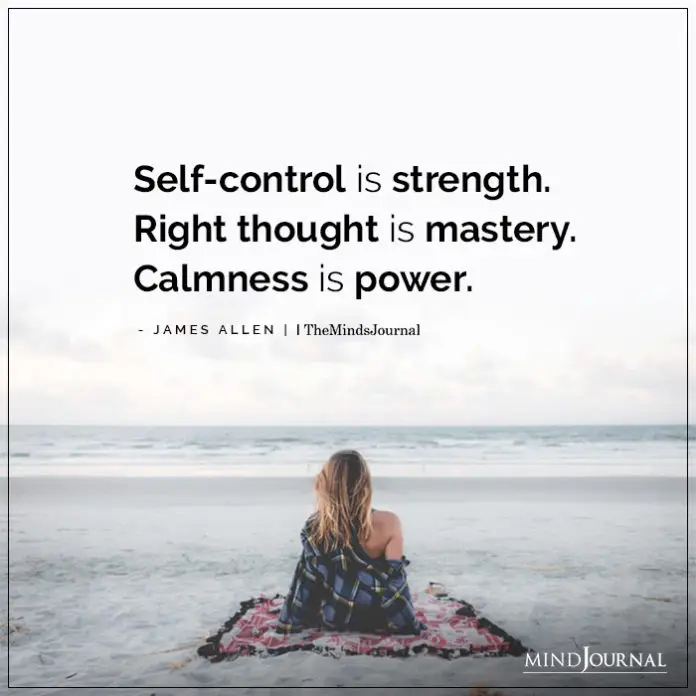
No situation and nobody can make us feel or do anything. Viktor Frankl showed us that. We always have a choice to react or not. For those who claim that unleashing their ire feels good and has no intention of changing, that’s another matter. Perhaps it feels good until things get out of control, somebody gets hurt, or the damage cannot be rectified.
Related: How to Attain Self Realization and Control Your Life
A preventive and more mature approach is making a U-turn and practicing the 90-second rule before the damage is done.
Scientists say that constant reaction to things beyond our control not only creates misery but it also shortens our lives. Chronic reactivity creates a stressful biochemical boomerang that weakens the immune system and increases the likelihood of a heart attack or stroke.
According to Taylor, from a neurological perspective, we have the power to choose moment by moment how we want to be in the world. I sat down with her and asked her about self-regulation when the neurological circuitry of the survival brainwashes over us:
“Essentially, when you look at cells in the circuitry of the brain, every reactivity is simply a group of cells performing their function. From the moment you have the thought that there’s a threat and that circuit of fear gets triggered, it will stimulate the emotional circuitry related to it, which is the fight-or-flight reaction.
That will trigger a physiological dumpage of usually norepinephrine or anger into the bloodstream. It will flush through you and flush out of you in less than 90 seconds. So from the moment, you think the thought that triggers that whole cascade of events to the chemical flushing out of you takes less than 90 seconds.”
Taylor Offered A Tip For The Next Time You Feel Triggered That Helps You Regulate Your Reaction:
“Look at the second hand on a watch. As soon as you look at it, you’re now observing yourself having this physiological response instead of engaging with it. It will take less than 90 seconds, and you will feel better. Of course, you can always go back to thinking those thoughts that restimulate the loop.
There’s probably a thought somewhere in your brain of somebody who did you wrong 20 years ago. Every time you think of that person it still starts that circuit. When things are getting hot and you’re getting hot-headed, look at your watch. It takes 90 seconds to dissipate that anger response.”
Another way of translating Taylor’s rule is when you react to a situation, you make a choice to do so—an unconscious choice perhaps, or a neurological choice—but a choice nonetheless. The good news is you can learn not to let every little hiccup throw you into a tizzy—whether it’s a printer paper jam, a traffic jam, or a grape jam smeared on your clean floor.
If I were to modify a message from President John F. Kennedy, I might suggest that you “Ask not what your life can do for you; ask what you can do for your life.” It’s a matter of flipping your perspective.
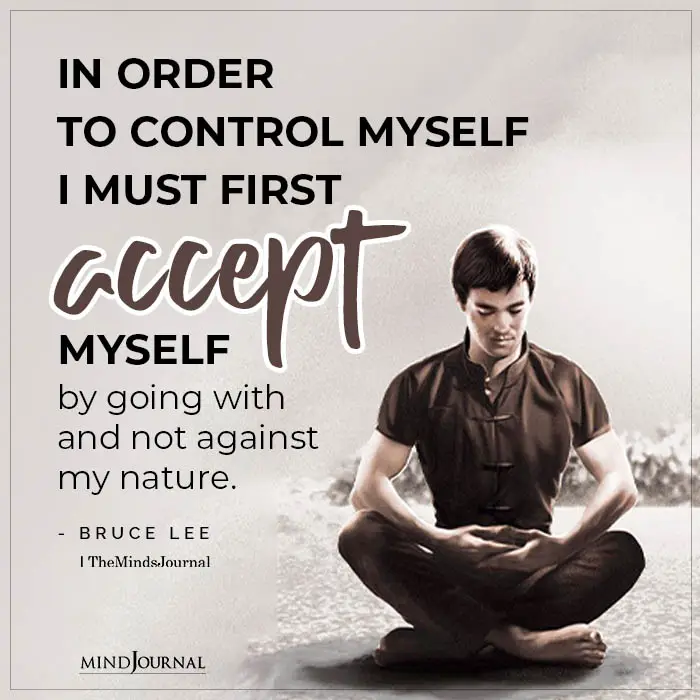
If you stand in a different place and look at your life from another angle, the U-turn has the power to change your world. When I interviewed Lee Child, author of the New York Times bestselling Jack Reacher series, he told me he manages stress by flipping his perspective and subscribing to the idea that “I’m not afraid of stress; stress is afraid of me.”
Taken together, your perspective and awareness of your own 90-second neurology provide choices for greater self-control.
You don’t get to choose how you’re going to die or when. But you do get to choose how you want to live in the present moment. And although it’s a powerful and awesome feeling when you make the choice, it’s not always easy to do.
Life’s curveballs will slam you at lightning speed from all angles, from time to time, throwing you off your path. The question is, “What are you going to do about it?” This is a question many of us never stop to think about.
Related: Ask Yourself These 4 Questions Every Morning, To Get Control Of Your Mind
If you want to thrive in this world, the 90-second rule offers a mindful way to override your hardwired survival reflex of reaction and cope with life’s unexpected events—no matter how dire the circumstances—in a calmer, healthier, more mature way.
If you want to know more about this topic, then you can buy Bryan Robinson’s book, #Chill at amazon.com, or on his website, bryanrobinsonbooks.com.
Written by Bryan Robinson
Originally Appeared In Psychology Today
If you are struggling to build self-control in yourself, then start practicing the 90-second rule now. Now don’t expect to notice self-control in just a few tries; it is going to take a considerable amount of time for you to get there. Be patient, and work towards being the best version of yourself. You can do it!
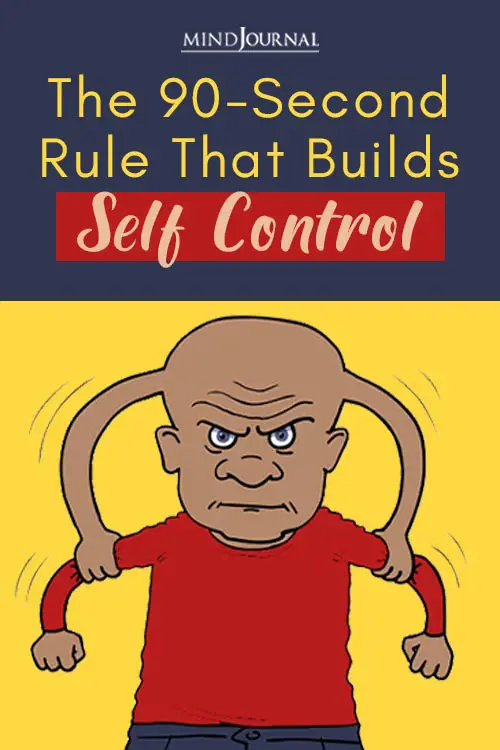
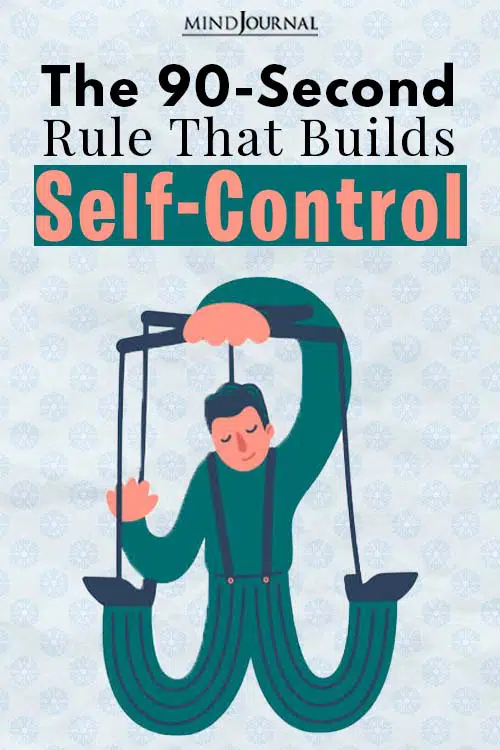
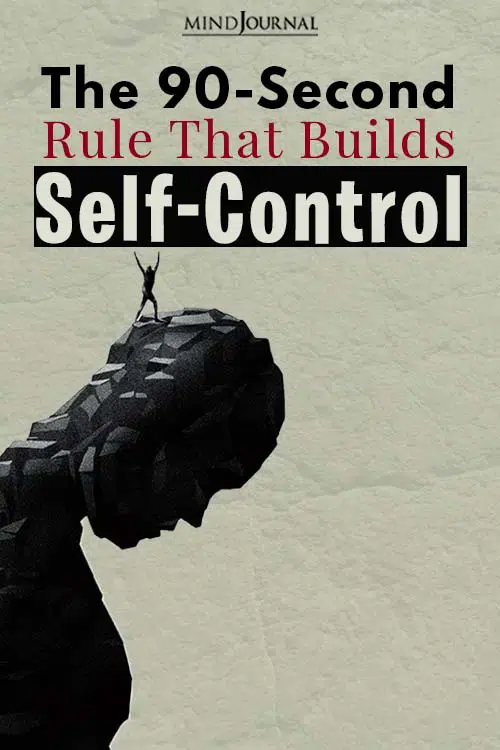
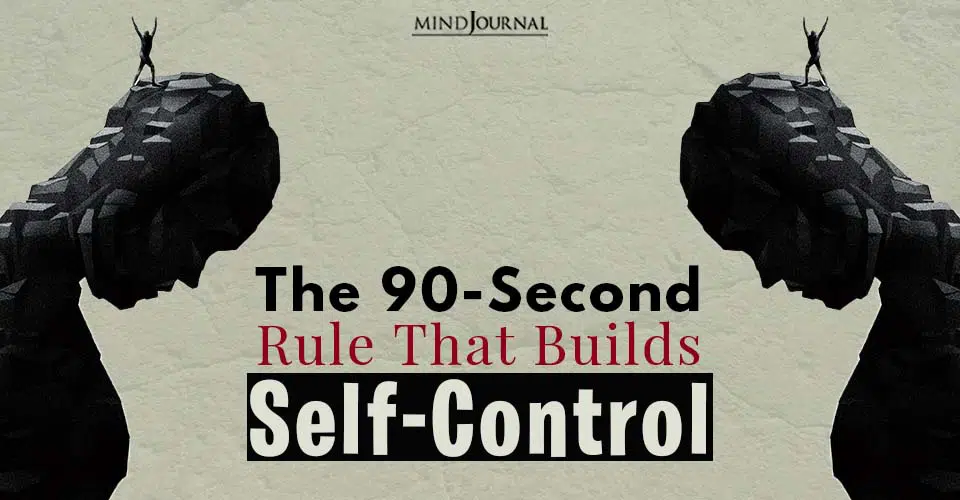







Leave a Reply
You must be logged in to post a comment.